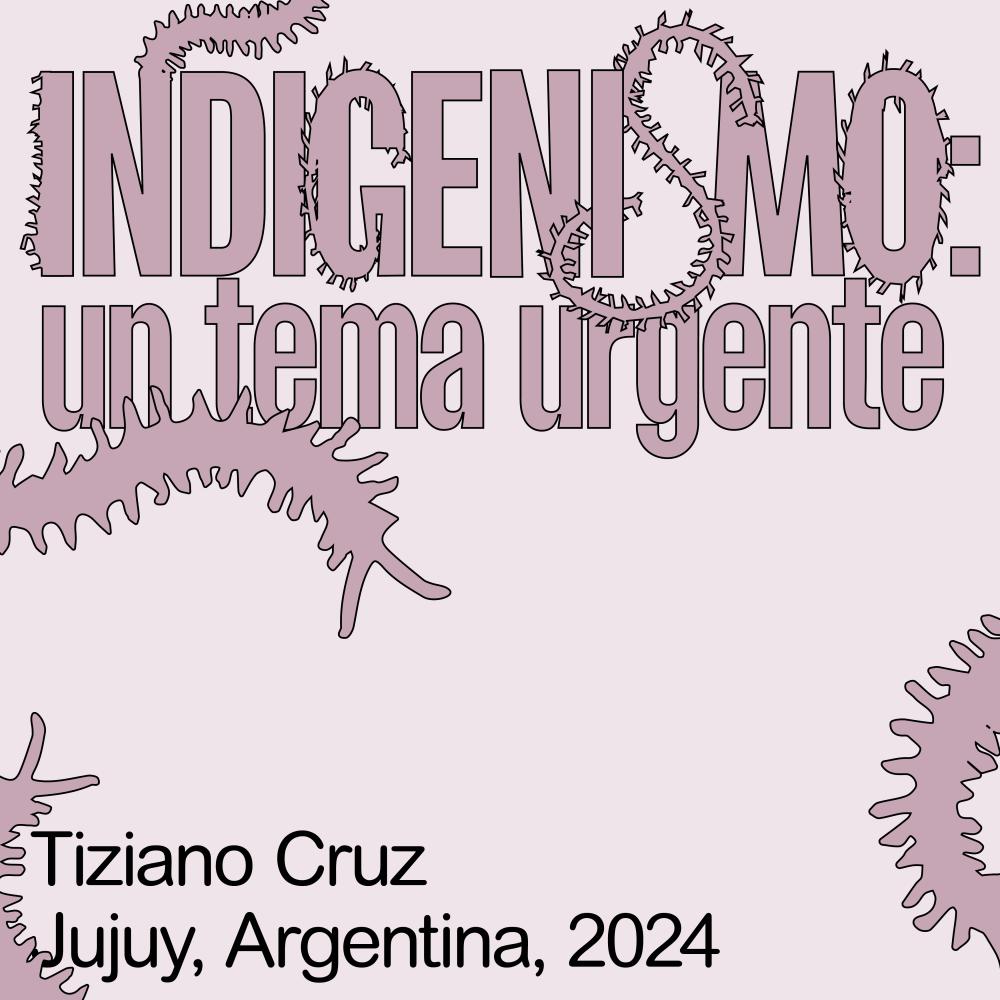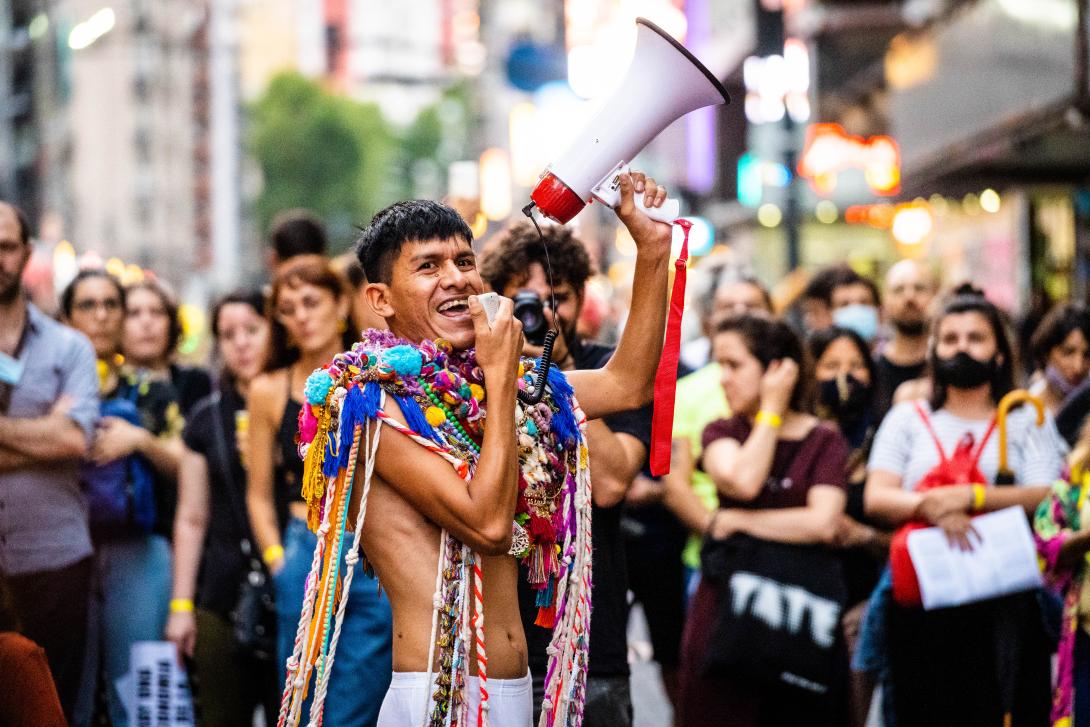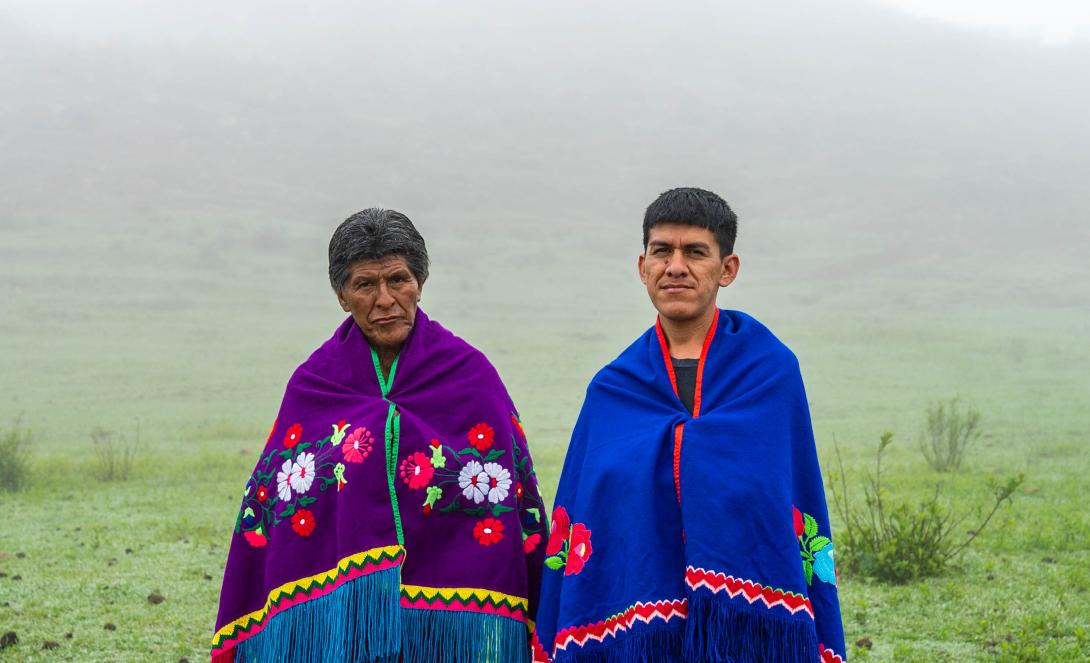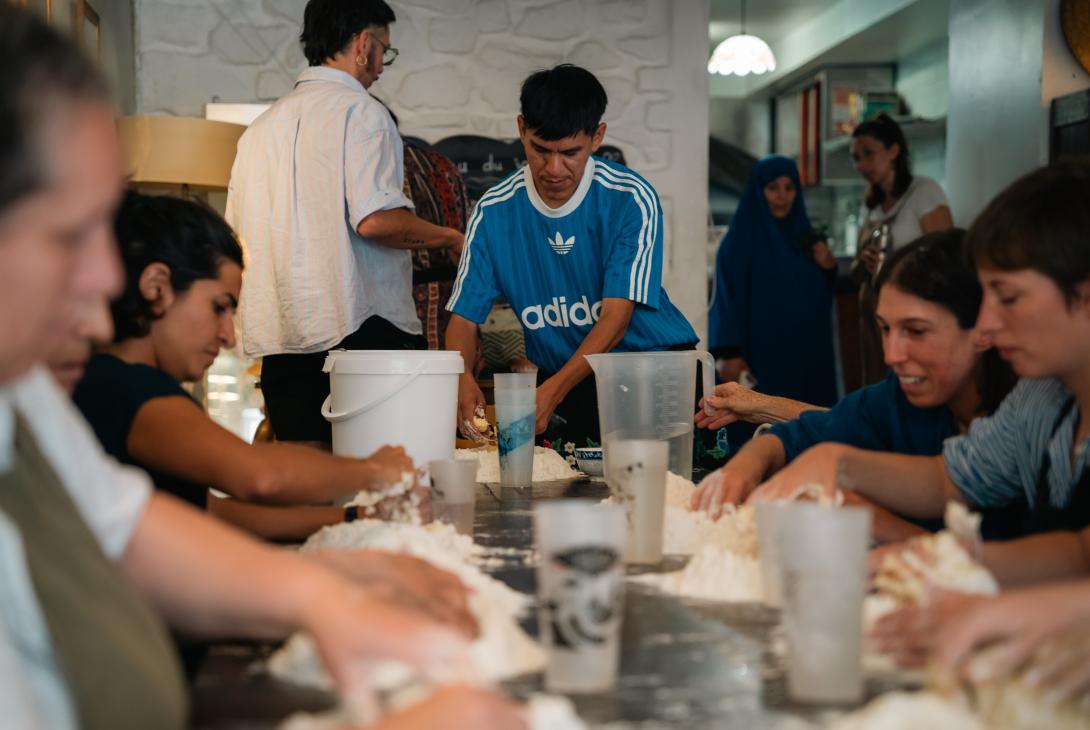Indigenism: An Urgent Matter
Tiziano Cruz
For our September-December brochure, Tiziano Cruz wrote this essay. You can read the original text in Spanish here. On 20 and 21 November 2024, Tiziano will perform his piece Soliloquio at KVS BOL. More info and tickets here.
Jujuy, Argentina, 2024
On the other side of the Atlantic, on the other side of the sea, on the other side of the mountain there is a people, here I am. The blood of my people is steaming on the cane fields, it dyes rivers, all the while carancho eagles devour meat off bones, machines sharpening their beaks against the whitish limbs, bones get sculpted, change shape, crack, are pierced, mutate. Here, in my land, there is still great danger. There is an Indigenism that is no longer cornered in the barn with cows and sheep. Even in museums, theaters, and art galleries, there are silent devotees of Indigenism. But we are not just objects for exhibition, we are a people, a perpetually disputed land.
People of my community, decimated by both colonialism and neoliberal governments, we aren’t recognized as producers of knowledge in literature, even less in the other arts. Quite the opposite, we have been used as objects of study and empty vessels for their intricate theories. This isn’t only happening with my region, but with many communities throughout Latin America and, more widely, the Global South. Yet here I am, writing these lines. I am the 1% of my community with the ‘privilege’ of internationalization in the arts. The rest of my people, men, women, and children, are working in hostile conditions in factories and mines, and for companies.
This said, knowing that colonialism has been grounded, up until today, in the disdain of indigenous communities, and that there is no consolation for this, there are urgent matters we need to talk about: matters of the present and of the future. We have to create a new society, even if it sounds utopic, where children aren’t enslaved in factories and markets—this new world is only possible with their emancipation, too. We must tackle power imbalances structurally, recognize them and eradicate them, because individual rights are useless if opportunities aren’t collective. Democracy is useless if it doesn’t fight against the structural inequalities of a region. At the end of the day, it is useless that I am the 1% whilst the rest of my people can’t live with dignity. Because it is a matter of life or death, not of the individualized ‘opportunity’ that neoliberal systems set up by assigning me with a successful position in meritocracy. Ladies, gentlemen, and gentlepeople, meritocracy conceals racism, classism, machoism, transphobia, homophobia, xenophobia, aporophobia, and most blatantly indigenousphobia. After all, meritocracy denies systemic power imbalances. I represent all these imbalances: I am an indigenous person, a homosexual, I am poor, and a foreigner in my own country, on my own land—a land that has provided for hundreds of communities across generations, land which is coveted by multinational companies and even by the democratic, better, antidemocratic, State.
We are despised because we don’t merge into the new market systems, since capitalism is not part of our modes of thinking and acting, it is not within our world view. This does not mean that we do not understand the consequences of capitalism, because the issue with Indigenism today, the one we are concerned with, is not just land: It is to understand, once and for all, that ours is an economic, social, and cultural struggle. As thinkers in the arts, it is fundamental to problematize public policies and politics in order to really and radically diminish the external forces that negatively impact the prosperity of all indigenous people.
We know very well that there is no biological foundation for racism, but that it operates, still today, as a discourse. This is why it is also important to say that Indigenism goes beyond biology, that it is much more complex because it encapsulates group and community life experiences. Communities that share the experience of the worst violence that ever existed, that are erased from official history, looted, persecuted and burned alive, forced to procreate, live within enforced binarism, and deprived of our language. As artists today, we must bring forward conversations about the systemic racism of this world, which is set up and promoted by neocolonialism and imperialism.
The capitalist-colonial system isn’t interested in a future if it is not a continuation of the here and now. But this here, this present that they want to continue, is so violent and cruel towards global minorities, or greater majorities, that it makes us think they want us dead. If the future is today, then there is imminent danger threatening our bodies.
This is why it is important that Indigenism is on stage around the world, because it carries a utopic horizon of a better world where the fundamental structures of community and the fair distribution of goods and resources are fostered. A world where no body matters more than any other, a world without tangible and intangible boarders, a world where skin color is not a barrier to get an education and a job. This horizon reaches far beyond our embodied existences. We have to walk a long path and surely some of our bodies will fall aside, pierced by bullets, because we know that all colonization processes extend in time and cause the death of colonized people, and because, in my region, the extermination of indigenous communities is a systemic practice still carried out today by revived neocolonial systems. This is why we are certain that new generations will come, they will raise our flag and share our collective struggle.
My mother died some weeks ago
cancer had taken its toll on her body
She couldn’t wake up
Mother is gone,
we’ve been left alone
Sadness
could slit my throat
yet, I shout:
mum, don’t listen to the call of my lament
soon, we’ll run on our land
mum, there’s chaos here
all sorrow and pain
mum, don’t listen to the call of my lament
soon, we’ll be jumping into rivers
I am a child who’s lost their mother
a child who’s lost their house
a child splashing barefoot in the mud.
I am leaving, leaving now,
I don’t just miss my land
but also the singing of guaypos birds
in the afternoon, when mist flies low
trails disappear
I am leaving, leaving now.
Now
my life
exhibited in the gondolas of the Contemporary Art Market
I am waiting for the moment we will meet again in a galpón somewhere, dancing to cumbia songs that have become rare in this life of ours.
I am devastated,
I want to cut my veins.
I have lived intensively,
body pain,
a child who is an orphan of their language, their land, and now their mother
mother
don’t listen to the call of my lament.
Translation: Castillo and Marnie Slater, Brussels, Belgium, 2024



